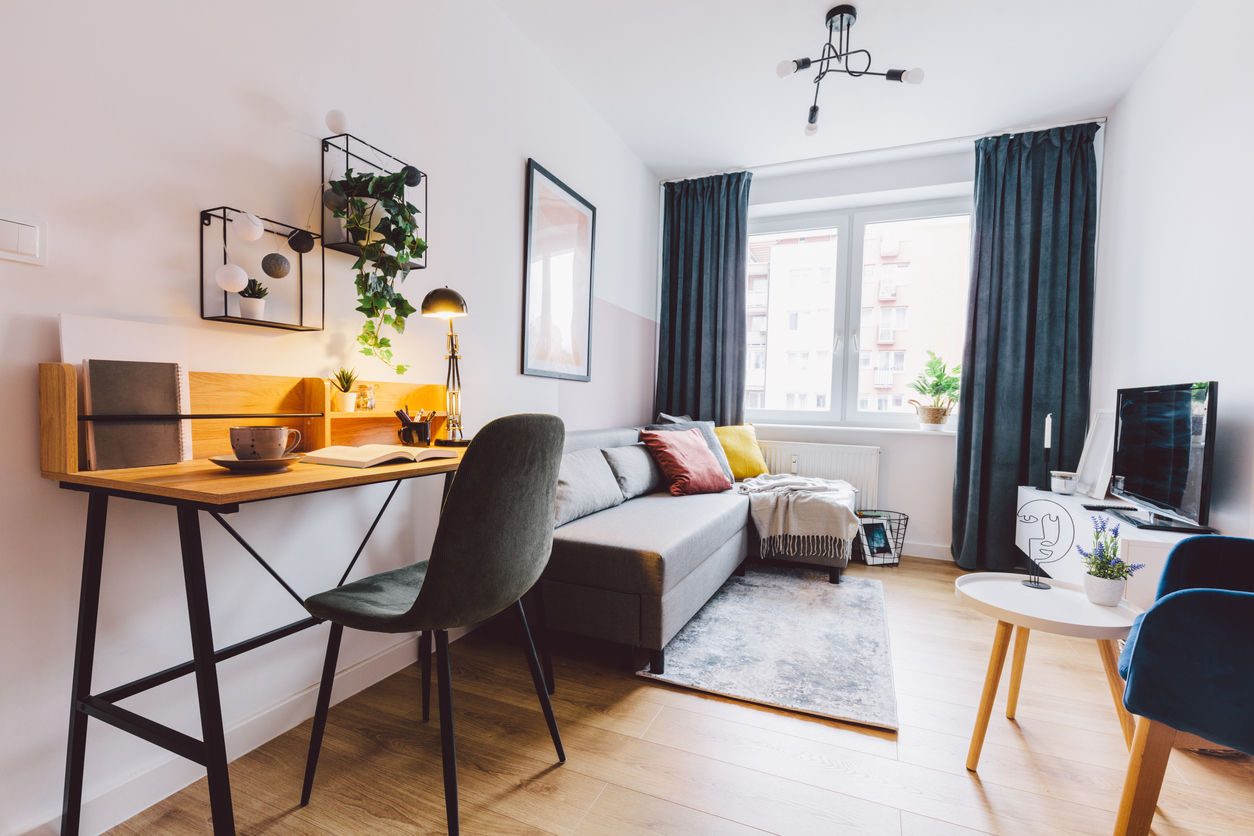- What you should NOT do when selling a house
- Avoid these mistakes when selling your home
- 1. Overpricing your house
- 2. Not disclosing problems
- 3. Spending too much on renovations
- 4. Not making needed repairs
- 5. Not staging
- 6. Ignoring feedback
- 7. Having too much clutter
- 8. Not doing a deep clean before photography and showings
- 9. Not painting neutral colors
- 10. Underestimating the total cost of selling
- 11. Not having enough showings
- 12. Neglecting marketing
- Additional questions to ask yourself before selling your home
- Additional things to consider when selling your home
- Avoid common selling mistakes and maximize profits
12 Mistakes To Avoid When Selling Your Home
Click here to browse our Real Estate Agent Directory and contact top-rated agents in your area!
Mistakes are often made in sellers’ rush to get their homes sold quickly. It’s easy to focus on the end result and not what it takes to get there.
To make it easy on you, we’ve made a list of common mistakes you might make when selling your home. Learn from the sellers who have gone before by not making these common home-selling mistakes.

What you should NOT do when selling a house
The following are some of the top mistakes made when selling a home. Avoiding them can lead to a better chance of a sale and more money in your pocket.
Avoid these mistakes when selling your home
1. Overpricing your house
You may think your house is worth more than what the local real estate market will bear for many reasons, including improvements you’ve made, your sentimental connection to the house, or even the price you paid when you bought it.
Ultimately, a house is only worth what someone is willing to pay for it. So hire an agent who can do a comparative analysis to find the best listing price that will most likely lead to a sale and the most profit for you.
A similar mistake would be to get too emotional about the sale. You may have put your heart and soul into your house and made it a home for a long period of your life. But your potential buyers are looking at the house in different ways. It’s best to be objective about the home-selling process and make logical decisions.
2. Not disclosing problems
Most states have seller disclosure laws requiring home sellers to disclose major issues to potential buyers, including the condition of the house’s structure, electrical and plumbing systems, the heating, venting, and air conditioning (HVAC) system, the presence of asbestos, and other issues that must be disclosed.
For example, if you know the house has outdated wiring, you must disclose that. Hidden issues must also be disclosed, such as the presence of underground tanks, septic systems, termites, and structural defects. However, don’t make the mistake of willfully not disclosing significant issues, which may lead to a lawsuit or criminal charges.
>>MORE>> Repair or Regret: The Costly Gamble of Ignoring Home Repairs When Selling
3. Spending too much on renovations
While it is a mistake to hide issues that you should disclose, you also may not need to spend a lot of money on projects that won’t offer a good return on investment or may not need to be repaired or updated.
For example, there may be a crack in a wall that would be expensive to repair. However, if you disclose the presence of the crack, the buyer and their home inspector may not even want you to fix the crack, saving you potentially thousands of dollars.
>>MORE>> Unleashing the Magic of Smart Home Technolgy with Savvy Spending
4. Not making needed repairs
While you shouldn’t do unneeded renovations, major issues should be addressed. If you neglect to do major repairs before showing your house, you could have to make the repairs later or reduce the house price after an inspection inevitably uncovers the issue. The inspection may reveal significant issues that could lead to costly repairs, a major drop in the offer amount due to an inspection contingency, or even a withdrawn offer.
Save yourself time and hassle by addressing any major repairs you can reasonably afford before putting the house on the market. Then, you can get the repairs done at a better cost than what the buyers might request via a price reduction.
5. Not staging
Staging your home professionally could increase the sale price, and staged homes typically sell 73% faster than unstaged homes. Staging companies can rent furniture, update the decor, and help create an inviting and emotional connection with buyers.
At the very least, you can stage your house yourself by maximizing natural lighting, cleaning and decluttering, and taking down any personal items that might put off potential buyers.
>>MORE>> Master the Housing Market Dance: Unraveling the Art of Perfect Timing
6. Ignoring feedback
It may be difficult not to take criticism of your home personally, but take any criticism and use it to increase your chances of selling your house. In addition, agents and buyers who have viewed your house but have yet to make an offer may leave feedback that could be used to help fix potential issues that are turning people away.
By ignoring feedback or responding to it emotionally, you miss the opportunity to make beneficial changes that could lead to a quicker sale. Your main objective is to sell the house, so any feedback that can be used to accomplish that goal should be considered.
>>MORE>> Agent Advice – Overcome the Emotion of Home Selling
7. Having too much clutter
If you decide not to stage the house and live there during the sale, be sure to declutter. Clutter can make it difficult for potential buyers to imagine living in the house with their belongings and furniture.
It may not be feasible to send your furniture to a storage unit, but you could box up many of your belongings to send to a temporary storage unit during the sale. If you’re getting ready for a move, this can help you open up the space and make it more inviting for showings and open houses.

8. Not doing a deep clean before photography and showings
In addition to clutter, if your house needs to be properly cleaned, stains, grime, and odors could put off potential buyers. If there are mold issues in the basement, do what you can to reduce the water penetration causing the mold. And make sure the basement, bathrooms, and kitchen are clean.
A clean house can go a long way to helping buyers feel comfortable during showings. A dirty or smelly home, on the other hand, can end showings prematurely. Professional cleaning should be part of your budget and should be done before showings. Use air fresheners or scented candles to help make rooms smell extra fresh and clean.
>>MORE>> Unlock the Secrets: The 4 Must-Have Insights for Selling Your Home in the Summer
9. Not painting neutral colors
While you’ve lived in your house, you’ve personalized it. The style in your home represents your tastes, which may be more modern, colorful, or even more eccentric than average tastes. You may be unable to change fixtures and cabinetry, but you can put a fresh coat of paint on the walls and trim.
You may love brilliant colors on everything in your house, but many potential buyers could find it difficult to picture themselves in a house that isn’t painted in neutral colors. It will also remind potential buyers that they will need to undergo the time, expense, and hassle of having everything painted after buying the house. So it’s best to paint neutral colors before the sale.
10. Underestimating the total cost of selling
The cost of selling a house includes the real estate agent’s commission, closing costs, staging, cleaning, marketing, and repairs. Some of these may be covered by your agent, such as photography and marketing, and some you may have to pay out of pocket, such as professional cleaning.
The sale process may get even more expensive if you are underwater on your mortgage and need to cover the difference between what you get from the sale and what you owe to pay off the mortgage. Make a budget so you’re not surprised when the numbers start adding up.
11. Not having enough showings
It may be inconvenient for you to open your home to dozens or hundreds of strangers to look around your house. But it’s an essential part of the selling process. Having as many showings as possible and potentially an all-day open house event maximizes the number of people looking at your house. This could lead to the most offers.
It only takes one good offer to sell a house. But you have to increase the chances of getting that offer in the first place. Showing your house as much as possible can lead to getting the right offer.
>>MORE>> Supercharge Your Selling Journey: Why you Need a Realtor – 7 Benefits for Sellers
12. Neglecting marketing
An experienced agent should be able to create a solid marketing plan to get a good price for your house. With their expertise and experience, they should know where to advertise. This includes knowing how to use images and copywriting in real estate listings and advertisements to entice potential buyers to look at your house. Your agent will also handle showing appointments.
Marketing includes listing the house on multiple listing service (MLS) databases and all the commonly-used real estate listing sites. Photography is also a major part of a successful marketing campaign.
Make sure your agent hires a good photographer. Listing photos are an essential aspect of the modern real estate market, so you want your pictures to stand out to attract showing appointments.
Additional questions to ask yourself before selling your home
What happens when a Realtor makes a mistake?
Mistakes can happen, whether working alone or with an agent. Sometimes the mistakes can cost you money or even the sale itself. That’s why it’s important to hire an experienced professional who is unlikely to make a mistake in the first place or knows how to fix mistakes once they happen.
Should I empty my house before selling it?
You don’t necessarily need to empty your house before selling, although you should consider decluttering it. Since you will be moving anyway, renting a dumpster and getting rid of some of the things you won’t take with you on your move might be a good idea. This can free up space to make the house look bigger and cleaner.
Should I move out before selling the house?
It may only be financially feasible for you to move after selling your house, especially if your next home is contingent on selling the current one. If you keep living in the house, it’s probably a good idea not to be present during showings.
Is it better to sell my house privately?
A “For Sale By Owner” listing is possible when selling your home. However, remember that selling a house and completing a contract is challenging for amateurs. Hiring an experienced real estate agent who knows how to do all the paperwork can help you avoid costly mistakes and negotiate the best price.

What should I NOT do when selling a house?
One of the biggest mistakes a seller can make is trying to get through the home sale process alone. However, a top real estate expert in your area can guide you through the process, answer your questions, and help get you the best possible price.
Additional things to consider when selling your home
Here are a few more home-selling tips:
- Take care of the small things: Make sure light bulbs are in all the lights, the door knobs work, and any other minor repairs are handled. And put a welcome mat out front.
- Hang inexpensive curtains: Curtains can dress your windows nicely and will be one less thing for the buyers to worry about after moving in.
- Clean inside and outside: Do a deep cleaning of the house. Pay for a professional cleaner, if necessary. Don’t neglect the landscaping, and make sure the lawn is cut and edged and all shrubs are trimmed.
- Get help: Hire a knowledgeable agent who can save you time and money, handle all the paperwork, and maximize your profit.
Avoid common selling mistakes and maximize profits
Most selling mistakes can be avoided by planning, educating yourself about home-selling best practices and working with an expert real estate professional.
Find the agent who can help you get the best price for your home and the highest return on your investment by comparing agents and reading reviews and testimonials. Find your qualified real estate agent today by visiting FastExpert.





